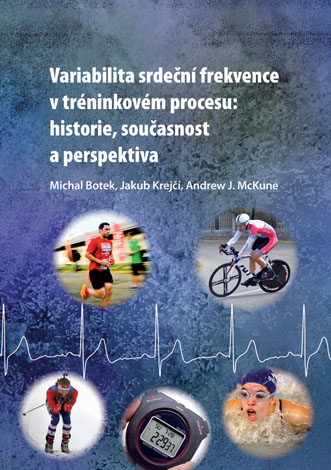Variabilita srdeční frekvence v tréninkovém procesu: historie, současnost a perspektiva
Heart rate variability in the training process: history, present and perspective
Author(s): Michal Botek, Jakub Krejčí, Andrew McKune
Subject(s): Psychology, Experimental Pschology, Behaviorism, Social development, Health and medicine and law, Sports Studies
Published by: Univerzita Palackého v Olomouci
Keywords: sports training; heart rate; patient monitoring; neurophysiology; electrodiagnostics
Summary/Abstract: Currently, there are many methods to assess, through heart rate variability (HRV), functional changes in the autonomic nervous system, which is involved in the control and regulation of homeostasis in the body. VSF represents a modern diagnostic approach to objectively monitor the body's response to training and non-training stress stimuli. Longitudinal monitoring of VSF during the training process allows the athlete or coach to operatively change the load with respect to the current state of the training capacity of his/her organism and thus maximize the training effect. In addition, this regular monitoring reduces the risk of accumulated fatigue or overtraining. VSF analysis thus becomes a natural part of the training process, offering the maximum possible degree of individualization even in team sports.
- E-ISBN-13: 978-80-244-5203-6
- Print-ISBN-13: 978-80-244-5202-9
- Page Count: 182
- Publication Year: 2017
- Language: Czech
- eBook-PDF
- Sample-PDF
- Table of Content
- Introduction

